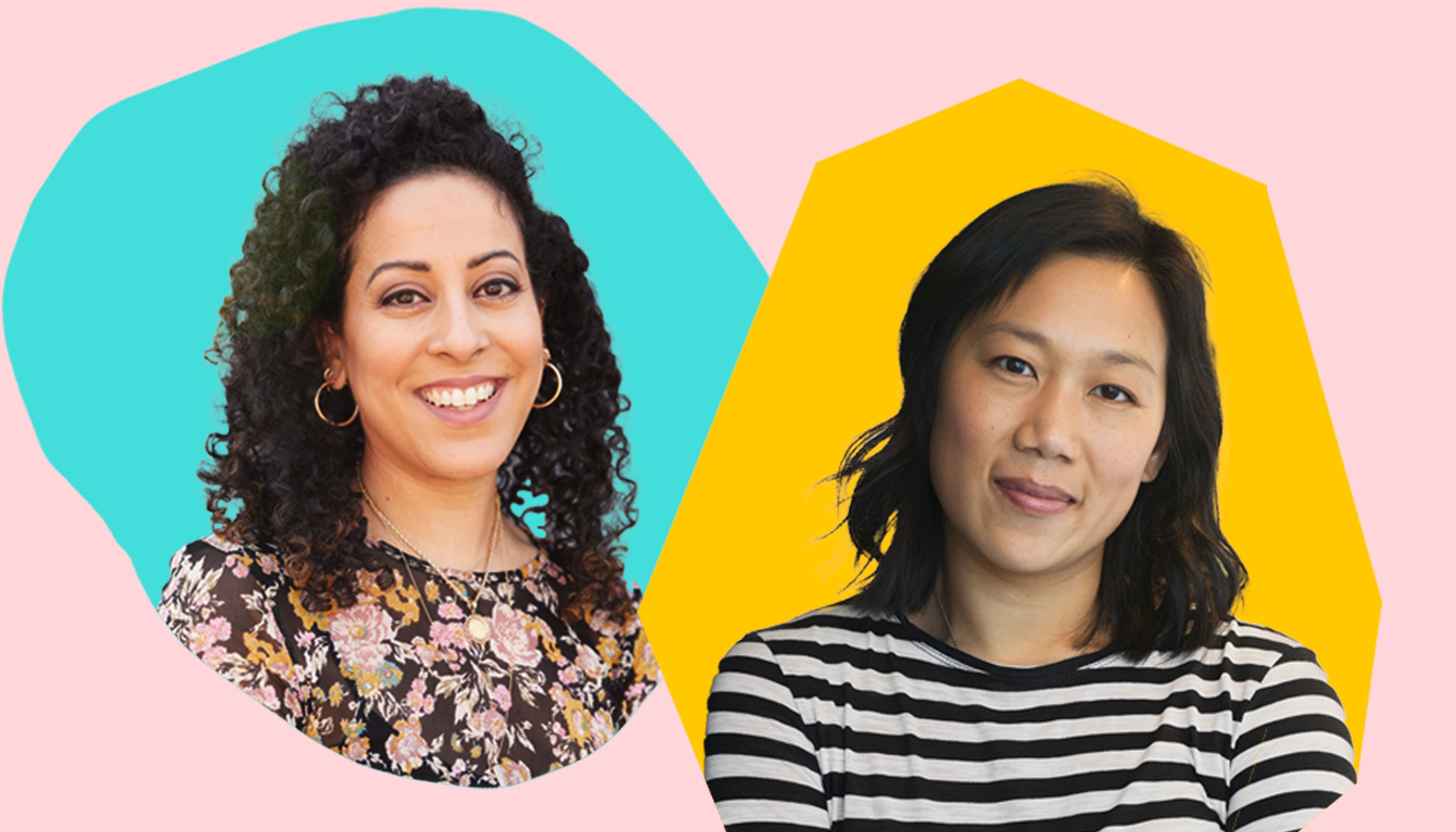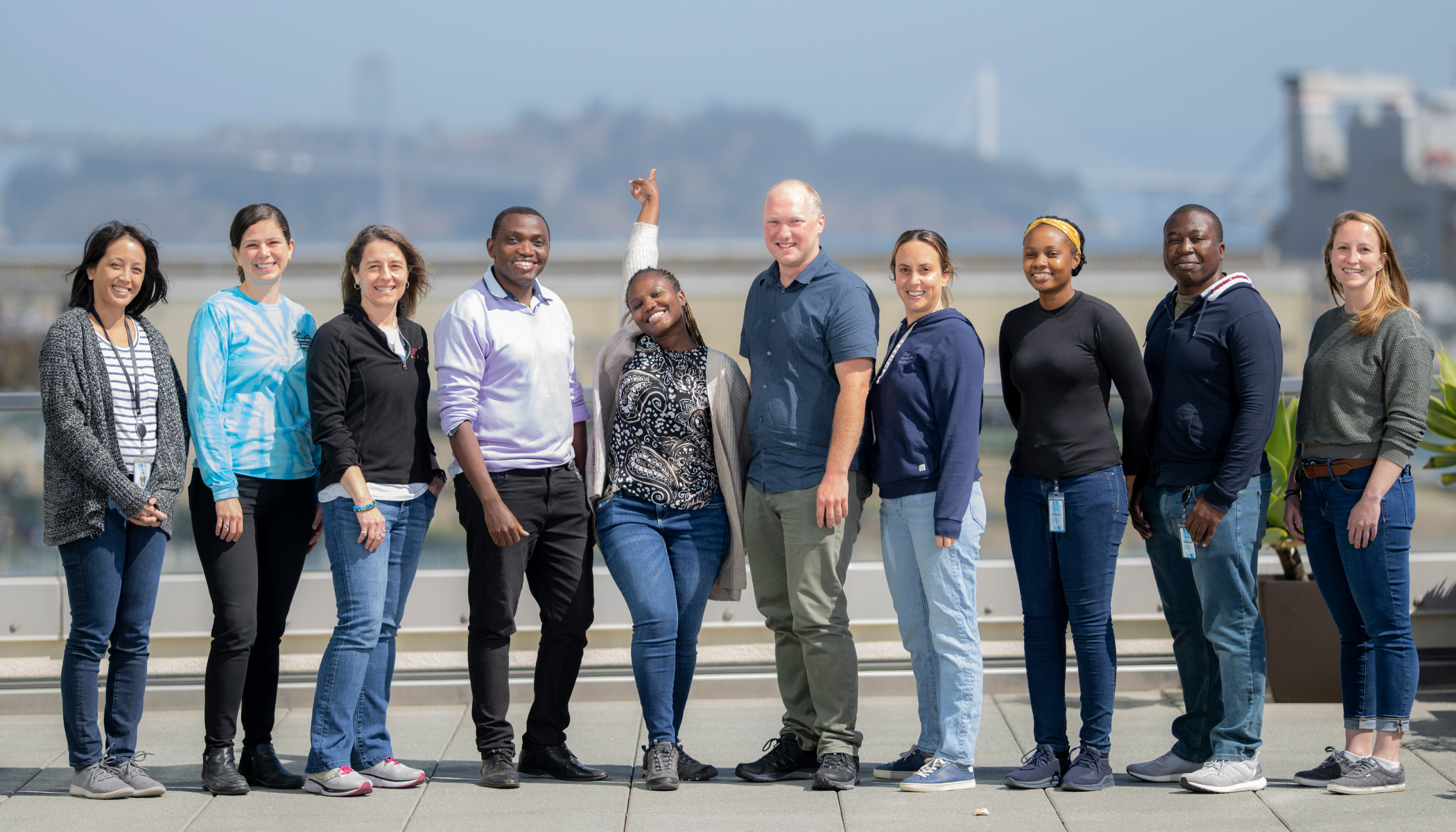Aug 29, 2021 · 11 min read
Dr. Priscilla Chan, Epidemiologist Jessica Malaty Rivera Answer Your Coronavirus Questions
What you should know about booster recommendations, the delta variant, protecting unvaccinated kids, and more.

The coronavirus pandemic continues to impact our daily lives. However, with the rapid pace of breaking news, it’s challenging to keep track and make sense of the latest guidance on vaccines, boosters, variants and other facets of COVID-19 response. To provide clarity on the current status of the pandemic and share what to expect in the coming months, our co-founder, Priscilla Chan, spoke with infectious disease epidemiologist Jessica Malaty Rivera.
Jessica was the science communication lead for the Atlantic’s COVID-19 Tracking Project — supported by funding from CZI — that compiled and published data on COVID-19 testing, cases, hospitalizations and deaths in the United States. She is also a research fellow at Boston Children’s Hospital and a popular science communicator who’s become a trusted voice on COVID-19 and the vaccines.
The whole purpose of vaccination is an incredibly altruistic thing to do. You do it for yourself, you do it for your community. And there are plenty of us, older and younger, who rely on the health of our communities to keep us safe.
During a recent Instagram live conversation, Jessica answered our viewers’ most pressing questions about how well the vaccines work at preventing severe disease from delta, what we know so far about booster recommendations, vaccines for kids under 12, and other helpful advice for the coming months.
Below are some of the key takeaways from the discussion. Click each question to view its answer.
- What are COVID-19 variants such as delta, delta plus and lambda?
- Do COVID-19 vaccines protect against variants?
- Can you explain the latest guidance on getting booster shots?
- What are best practices for keeping unvaccinated kids safe?
- Why should kids get vaccinated?
- Why are some people not getting the COVID-19 vaccine?
- Should I get the flu vaccine?
- Is the COVID-19 vaccine safe for pregnant people?
- Do I need to get the COVID-19 vaccine if I’ve previously been infected?
Also, make sure to watch the full conversation on the Chan Zuckerberg Initiative’s Instagram.
Note: The following excerpts have been condensed and edited for clarity.
What are COVID-19 Variants Such as Delta, Delta Plus and Lambda?
Jessica Malaty Rivera: When COVID first emerged, the SARS-CoV-2 virus, it was all we knew. We didn’t have a different version of it, there weren’t variants that emerged yet. But viruses mutate as they replicate. When that happens, and there’s an accumulation of these mutations, then you can have something that we call a variant, a slightly differently behaving virus.
What we’re dealing with today, especially in the context of delta, is a more transmissible version of SARS-CoV-2. Meaning, the average person who gets sick last year could probably infect one, two, maybe three people. Now it’s much higher than that. It’s like a north of six, some estimates would say. It makes the individual that much more likely to be a risk to other people if they do become positive with the virus.
PC: Okay, so it’s more infectious than last year. Is it more dangerous?
JM: The delta variant is not more dangerous in that you would be more likely to be hospitalized or die. However, one of the reasons why we have been encouraging folks to keep their risk low and to keep transmission low in their communities is because we want to protect our healthcare system. The average caseload right now is so high because the delta variant is so infectious.
Do COVID-19 Vaccines Protect Against Variants?
Priscilla Chan: How effective are the vaccines against the new variants?
Jessica Malaty Rivera: They’re very effective. These vaccines strive to do two major things: Keep people out of the hospital and keep people alive. And it is still really effective at doing both of those things — over 95% effective at that, even in the context of delta. CDC’s recent Morbidity and Mortality Weekly Report shows that it’s probably around 92% effective at doing those things.
Can You Explain the Latest Guidance on Getting Booster Shots?
Priscilla Chan: What’s the thinking behind the booster recommendations if the vaccine works?
Jessica Malaty Rivera: When we think about boosters, that’s not a new concept, right? Many of the pediatric vaccines, you’re familiar with, have a three-dose series. But the thinking behind that is based on data that was recently released from Israel. Now, granted, this data still has to be fully reviewed by our regulatory bodies. But it seems like antibody levels are waning a bit, a few months or several months after the initial vaccination. And so because of that, they did some studies on an additional dose — a third dose. And, after that additional dose, recent data shows a significant exponential growth in immune response. That said, because delta is so infectious, this recommendation is coming specifically in light of delta to prevent people who might get sick from getting severely sick and possibly needing hospitalization.
In the context of boosters, we have to recognize that this is a global pandemic and that only 20 percent or less of the world has even received one dose of the vaccine. When we talk about boosters, we have to remember that we are in this together. As we are expecting our government to produce and provide more vaccines for us, we should also be calling on them to make sure that we are providing, donating and contributing to global vaccine equity. Because again, this virus emerged many miles away from where all of us live today. And we are not in the clear until we’re all safe and protected.
What Are Best Practices for Keeping Unvaccinated Kids Safe?
Priscilla Chan: You and I have young kids. What are your best practices on keeping our kids who are too young to be vaccinated, safe in their communities and in school?
Jessica Malaty Rivera: There are millions of children who are not yet eligible for COVID vaccines, I have two, you have two, and as a result, my job as their parent is to protect them by keeping my risk low too. We avoid things like indoor gatherings, we avoid indoor dining. We are always wearing masks in mixed settings. Our pod, or our circle of people who we trust to be unmasked indoors, is exceedingly small. We are trying our best to preserve their health until they can get vaccinated, which we are hoping will happen sometime mid-winter.
PC: What about masks? Is that enough to keep kids safe? What does that look like as far as what the CDC has recommended?
JM: Masks are a really, really great tool to keep kids safe. It isn’t a silver bullet. Remember that all of these mitigation efforts are layers and layers of protection. No single thing, not even vaccines can perfectly protect anybody. And so, it’s a combination of avoiding high-risk behavior plus masking. For children specifically, the CDC has made it very clear that there is no harm in wearing masks. There’s no reduced oxygen level. There’s no increase in carbon monoxide or carbon dioxide. Children who are two and over are absolutely okay to wear masks. In the context of schools, I think masking is critical when you’re dealing with a very mixed setting of some kids who are old enough to be vaccinated, some who are not, teachers who are vaccinated, some are not, administrators, and so on.
Why Should Kids Get Vaccinated?
Priscilla Chan: One question that comes up for a lot of people is no matter what the data says, it doesn’t seem like kids are getting infected, so why even worry about vaccinating?
Jessica Malaty Rivera: In the grand scheme of things, the pediatric population is not the highest percentage of deaths or high risk. However, “low risk” is not “no risk.” And I think that there are enough immunocompromised children, medically fragile children, and children who have a proclivity to really bad outcomes with respiratory viruses that we can’t be thinking about this individually. The whole purpose of vaccination is an incredibly altruistic thing to do. You do it for yourself, you do it for your community. And there are plenty of us, older and younger, who rely on the health of our communities to keep us safe.
Why are Some People Not Getting the COVID-19 Vaccine?
Priscilla Chan: You said that, when someone disagrees with you, the first reaction should be to listen. And so I know that you’ve talked to a ton of people, you’ve studied this. What are some of the reasons why people in the US aren’t vaccinated yet?
Jessica Malaty Rivera: The vaccine-hesitant spectrum is wide and it’s diverse. And it has many legitimate reasons for hesitation. There are people who have medical, historic, or current trauma — either distrust because of things that have happened from their provider or from a historical issue with their family. There are people who have a needle phobia. There are people who are waiting for FDA approval. There are people who feel completely paralyzed by this infodemic — the oversaturation of information. It’s a lot of noise. It’s a lot of charts. It’s a lot of stats and percentages that seem to compete with each other. And when people are inundated with information, fear, and sentiments of overwhelm, can make this decision difficult. Because of that, we need to focus on patience and repeating messages that increase people’s trust and increase the trustworthiness of the medical community.
Note: As of Aug 23, the U.S. Food & Drug Administration approved the Pfizer-BioNTech COVID-19 Vaccine, for the prevention of COVID-19 disease in individuals 16 years of age and older. It will now be marketed as Comirnaty.
Should I Get the Flu Vaccine?
Priscilla Chan: So typically every September, I make my flu vaccine appointment. Is it still safe to get the flu vaccine? Should I get the flu vaccine?
Jessica Malaty Rivera: It is still incredibly important for this flu season that is around the corner to get your flu shot. It is not going to be a problem to get it at the same time as your COVID-19 vaccine. Especially because so many schools are going back to in-person learning.
PC: And is the future of managing COVID-19 going to be like how we manage the flu?
JM: Again, when it comes to what this will mean for boosters, like the likelihood of annual COVID-19 boosters, time and data will tell, it could be that we’ll need annual boosters, but we have to base that on long-term data based on how immunity works.
Is the COVID-19 Vaccine Safe for Pregnant People?
Priscilla Chan: We have questions about pregnancy and babies. Can we get into the safety of vaccines for reproductive ages, infants and pregnant people?
Jessica Malaty Rivera: Yes, so there is really encouraging data to show that the vaccines are safe and effective for pregnant people. And that in some cases, protective antibodies can transfer to the baby, which is wonderful. Again, babies are not eligible for vaccination right now. So they are part of the unvaccinated population. Pfizer and Moderna have enrolled babies as young as six months in clinical trials for the COVID-19 vaccine. I imagine that by mid-winter range we may have data about even the youngest participants in these clinical trials.
Do I Need To Get the COVID-19 Vaccine if I’ve Previously Been Infected?
Priscilla Chan: If some get COVID-19, is getting vaccinated still necessary?
Jessica Malaty Rivera: I get this question a lot. Immunity from natural infection is not nothing. There are people who have robust immune responses from natural infection. However, on the spectrum of people who are infected with COVID-19, it is so variable — the immune response that people can have. Even if you’ve had a previous infection, the recommendation is to still get vaccinated. All you have to do is wait until you are fully-recovered and symptom-free to be vaccinated. And especially in the context of delta, it’s extra important to prevent any infection right now. You don’t want to risk getting into the hospital or dying from this virus.
Visit our COVID-19 Response page to learn more about our partnerships to fight the spread of the virus, support our frontline community health providers, and increase vaccine access.





